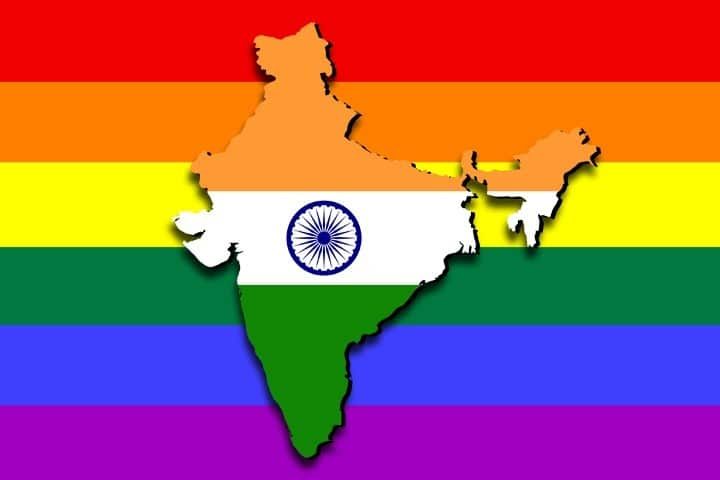
SINGAPORE — The leader of a Hindu organization that is the fountainhead of India’s ruling party has openly expressed his backing of the gay and transgender community, days before the government is due to respond to the Supreme Court about calls to decriminalize same-sex marriage.
However, the recent remarks by Mohan Bhagwat, chief of the powerful Rashtriya Swayamsevak Sangh (RSS), which is the parent group of the ruling Bharatiya Janata Party (BJP), could coerce the government to review its stance, said a junior minister in the federal government and a senior BJP leader, both choosing to remain anonymous as they were not permitted to speak to the media.
Speaking to an RSS-backed magazine published this week, Bhagwat said the lesbian, gay, bisexual, and transgender (LGBT) community “should have their own private and social space as they are humans and have the right to live as others.”
He quoted Hindu scriptures and mythology as the basis of his support, and added, “Without much hullabaloo, we have found a way with a humane approach to provide them social acceptance.”
The RSS, set up in 1925, has millions of active members across India and overseas, and supported Prime Minister Narendra Modi’s ascendency to power.
India’s Supreme Court began hearing petitions to acknowledge same-sex marriages after four gay couples claimed in December last year that without legalization, they could not have benefits like medical consent, pensions, adoption, or even club memberships. The four gay couples called for a Supreme Court ruling that amends or interprets laws to permit same-gender marriages, court filings revealed. Lawyers for the couples refused to comment about Bhagwat’s remarks, instead stating that the issue was up to the courts.
The hearing is poised to restart in March and may fan the flames of a legal run-in with Modi’s government.
In 2018, India legalized homosexuality when it repealed a colonial-era ban. Despite that ruling, however, Modi’s government has dismissed calls to legalize same-sex marriage. LGBT activists complain about not having legal backing for same-sex marriages, unlike heterosexual married couples.
“We can’t do so many things in the process of living together and building a life together,” complained one of the litigants, businessman Uday Raj Anand, who wants to marry his partner Parth Mehrotra, chief editor of India’s Juggernaut Books.
Another couple, Supriyo Chakraborty and Abhay Dang, said that they held a two-day commitment ceremony last year like any other “Big Fat Indian wedding.” Nonetheless, once the celebrations died down, they found that they could not take health insurance as a couple or nominate each other in life insurance policies.
Homosexuality is a touchy subject in the socially conservative country of 1.4 billion people, and speaking openly about homosexuality is still considered taboo for many.
The pleas by the four gay couples have already provoked a debate on prime-time TV news and triggered editorials in newspapers, and questions have been broached on whether India should join countries like the U.S., where same-sex marriages have been legalized.
The Indian Supreme Court cases, which follow many lawsuits filed in lower courts without any conclusive decisions, will be a closely watched trial for Modi’s Hindu nationalist government and his allies.
Modi’s Law Ministry previously fulminated against same-sex marriages and said courts should stay away from the law-making process that is under Parliament’s aegis. In one state court filing last year, the ministry posited that a marriage relies on “age-old customs (and) rituals” and a sexual relationship between same-sex individuals is “not comparable with the Indian family unit concept of a husband, a wife and children.” It further elaborated that in India marriage is “a solemn institution between a biological man and a biological woman.”
Three spokesmen for Modi’s ruling BJP, who refused to be named as the matter is before the courts, said the party’s opposition to same-sex marriage remains the same as the government’s. Nonetheless, the party will honor the top court’s ruling on the matter.
The Supreme Court has given the government until Jan 6 to file its responses. “With the top court taking up the case, the issue of marriage equality is likely to be decided at a hastened pace,” said Jayna Kothari, a gender-law expert who co-founded India’s Centre for Law & Policy Research. “A decision on same-sex marriage in the near future is inevitable. That will be a landmark moment.”
Supporting the couples are high-profile lawyers, such as one of India’s former attorneys general and another counsel, Saurabh Kirpal, who is openly gay. In an interview, Kirpal blamed Modi’s government for postponing his promotion as a state judge owing to his sexual orientation. Modi’s office did not respond to a request for comment on those remarks.
Last year, the U.S. House of Representatives gave final congressional approval to legislation that offers federal recognition of same-sex marriages, to pre-empt any possibilities that the conservative-leaning Supreme Court could reverse its ruling for legal recognition of such relationships.
The House vote was 258-169, with all of the chamber’s Democrats and 39 Republicans voting in support — though 169 of the chamber’s Republicans voted in opposition and one voted “present.” A “present” vote fails to count for or against the passage of legislation, but contributes towards the quorum.
The legislation, which was narrowly penned to function as a limited backstop for the 2015 Supreme Court decision Obergefell v. Hodges that decriminalized same-sex marriage nationwide, received the backing of LGBT supporters, as well as a number of religious organizations and entities including the Church of Jesus Christ of Latter-day Saints. Yet many religious conservatives still reject gay marriage as it runs counter to Christianity, biblical scripture, and natural law.
Indian LGBT advocates are hoping that their country’s Supreme Court will follow in the footsteps of the U.S.



